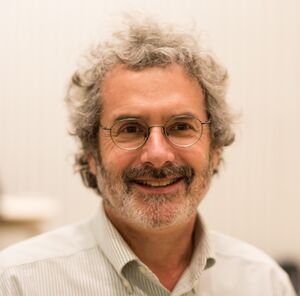Building a Better Future in Ukraine[edit | edit source]

by Neil Gershenfeld
Out of the thousands of fab labs around the world, one of the most impactful and hopeful activities is now happening in Ukraine.
Their flourishing fab labs (and so much else) were early casualties of the war. But rather than accept defeat, just a few weeks after the invasion a group of Ukrainian and German makers, policy-makers, researchers and activists teamed up to launch the Tolocar program with support from the German Federal Ministry for Economic Cooperation and Development (BMZ) and the Gesellschaft für Internationale Zusammenarbeit (GIZ).
Tolocar has created and sent 5 mobile makerspaces that have traveled over 34,000 kilometers, to support, train, and equip local communities. These have been used for meeting immediate medical needs, from assistive technology to making a mobile intensive care unit. They've been used for reconstruction, including producing furniture and creating construction material from building debris. They're being used for economic recovery, from making cargo bicycles to supporting distributed manufacturing to replace severed supply chains. And perhaps most important of all, they're helping maintain Ukrainian culture and the arts, supporting artisans and musicians.
At the heart of the project is the goal of making the interventions both sustainable and viral. Key to that is the Open Lab Starter Kit, part of the Fab City project at the New Production Institute at Helmut Schmidt University Hamburg. This is developing and deploying open designs for all of the digital fabrication tools, so that rather than being scarce resources it's possible to come to a lab to make a lab.
All of this is being done with a thoughtful combination of bottom-up, top-down, and middle-out organization, a model for combining the fast pace of a rapid response with the more deliberate pace of open community engagement.
The war in Ukraine is an appalling intrusion of history. But Tolocar is showing that it also contains the seeds of an opportunity. Rather than simply recovering what was, the project is building a better future in which it's possible for everyone to think globally and fabricate locally.

